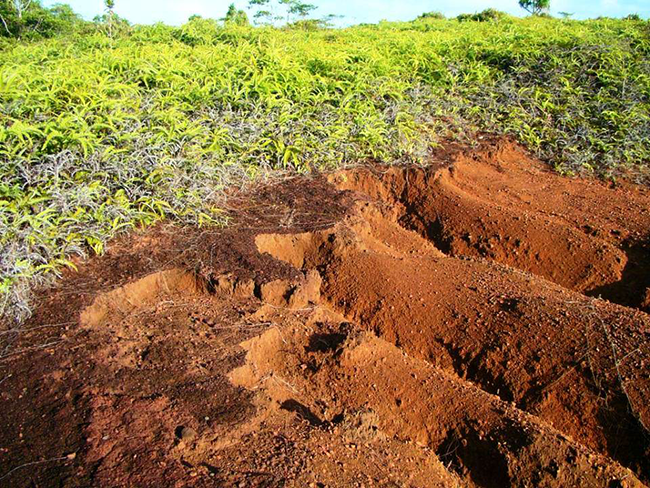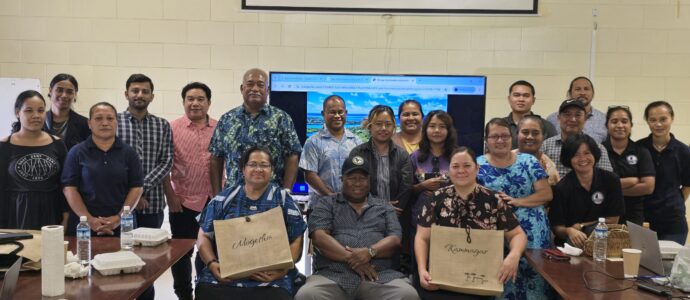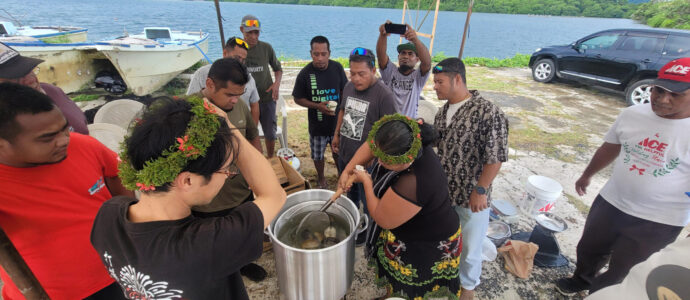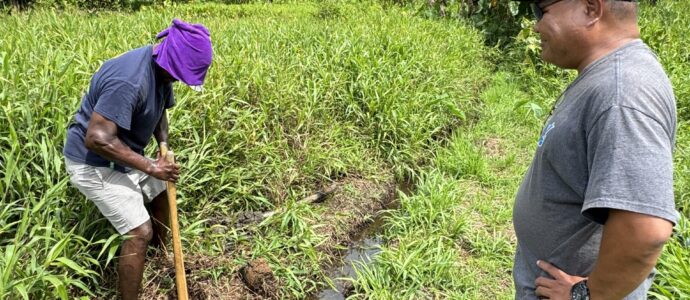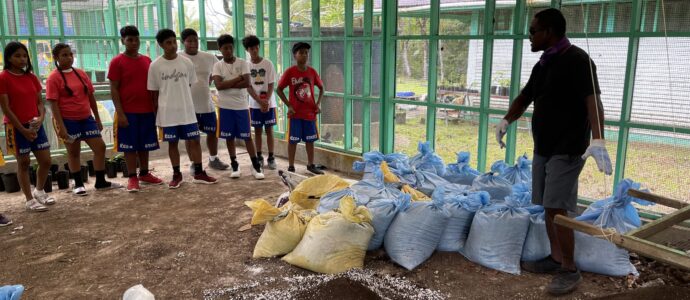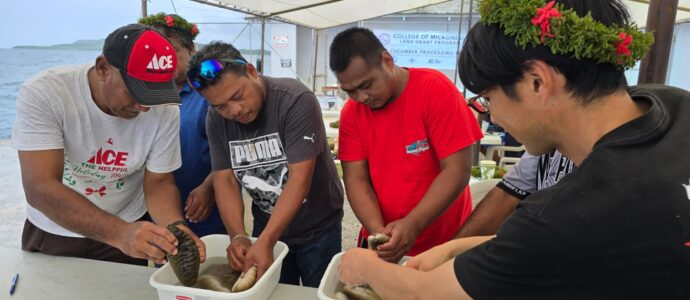COLONIA, YAP, FSM. Dr. Murukesan Krishnapillai, Researcher/Extension Specialist, Yap Agricultural Experiment Station.
Volcanic red soils in Yap are highly degraded with low soil fertility. Heavy rainfall and warm climate promote uncontrollable erosion and depletion of nutrients through leaching. More stable materials rich in iron and aluminum oxide are left behind which results in soils that is acidic. Such degraded lands lack nutrients and high acidity prevents plants from growing and is, therefore, challenging to farm or grow trees. These soils either sustain forests because of lack of severe topsoil disturbance or are degraded through topsoil removal and then support mostly ferns that are adapted to harsh soil conditions. In order to reclaim such degraded lands, a good crop management program involving identification and correction of nutrient deficiencies and toxicities is required. This will not only help in establishing sustainable agriculture activities in degraded lands but also increase economic returns and reduce risks of environmental pollution. In the present research, the role of biochar as a soil conditioner for sustainable agriculture in degraded volcanic red soils of Yap (GAGIL series) is being studied using field experiments.
